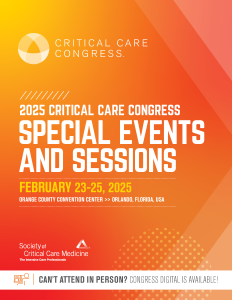Behavioral Health & Well-Being
Research Snapshot Theater: Behavioral Health and Well-Being, Adult
(115) The Toll of Frequent Night Shift Duties on Mental Health and Well-Being Among ICU Physicians
Sunday, February 23, 2025
9:45am - 10:45am Eastern Time
Location: Connections Central - RST 02

- IA
Ibrahim AlDraiwiesh, ACCP MSc ACP CC CRT
Lecturer
Prince Sultan Military College of Health Sciences, United States
First Author(s)
Co-Author(s)
Introduction: Critically sick patients in the intensive care unit (ICU) need attention at all hours of the night and day. But cumulative night shift work can throw off your circadian rhythm and leave you exhausted, depressed, and unable to sleep.
Methods: We use a cross-sectional study to explore the impact of different night shift duties on insomnia, exhaustion and depression in critical care physicians.
Results: A total of 240 physicians responded, 66% males and 60% aged between 31-40 years. Among them, 81% worked 8-15 night shifts, while 12% worked 16 or more. Clinical insomnia was present in 34% of the workers, severe exhaustion in 40%, and depression in 23% of them. Post hoc analysis revealed statistically significant differences among the different night shift groups. Those working ≥ 16-night shifts experienced higher levels of fatigue, insomnia, and depression compared to those working < 8 and 8-15 night shifts (p-value < 0.001).
Conclusions: A greater number of night shifts was associated with higher rates of exhaustion, insomnia, and depression among critical care physicians. The impact is more significant on physicians who work 16 or more night shifts than those who work fewer shifts.
Methods: We use a cross-sectional study to explore the impact of different night shift duties on insomnia, exhaustion and depression in critical care physicians.
Results: A total of 240 physicians responded, 66% males and 60% aged between 31-40 years. Among them, 81% worked 8-15 night shifts, while 12% worked 16 or more. Clinical insomnia was present in 34% of the workers, severe exhaustion in 40%, and depression in 23% of them. Post hoc analysis revealed statistically significant differences among the different night shift groups. Those working ≥ 16-night shifts experienced higher levels of fatigue, insomnia, and depression compared to those working < 8 and 8-15 night shifts (p-value < 0.001).
Conclusions: A greater number of night shifts was associated with higher rates of exhaustion, insomnia, and depression among critical care physicians. The impact is more significant on physicians who work 16 or more night shifts than those who work fewer shifts.

